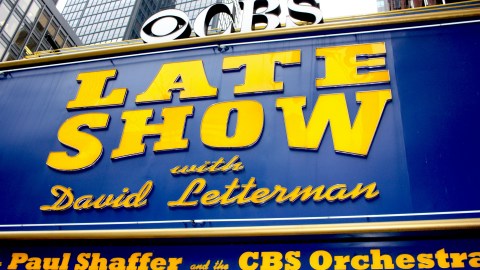David Letterman Would Be the Undisputed Web Series King

David Letterman has hosted his final episode of The Late Show on CBS. Letterman has been a fixture of late-night television for over three decades, beginning in 1982, when he joined Late Night on NBC.
Whether we’ve merely dabbled at open mics or made our livings in comedy, those of us who love to make people laugh cite Letterman’s influence more frequently than almost anyone else’s. The summer of 2004, when I was 12 years old, was the first point in my life when I was allowed to choose my own bedtime. Almost instantly, The Late Show became the last piece of my nightly routine.
Letterman fascinated me with his ability to combine broad appeal with genuine comedic innovation. At that point, he was approaching 60, but came off as a “cool grandfather” rather than someone who had fallen behind the times. He delivered monologue jokes that were tame enough to sit well with my grandmother’s sensibilities, but followed them up with subtle asides that revealed a darker, more twisted part of his sense of humor. He was the rare entertainer who stayed true to his artistic vision, even as he experienced runaway success.
As I got older, YouTube and Netflix helped me to gravitate toward other comedians. They were every bit as funny as Letterman, but didn’t have to operate within the formulaic, advertiser-conscious confines of The Late Show. Plus, I could watch them whenever I wanted, on demand, without commercial interruption. I haven’t watched an episode of The Late Show in years, and not because I like it any less. I just like a few other shows — and formats — even more.
Letterman got his start in the days when the three major networks dominated television. Cable was in its infancy, found only in the homes of those who were far ahead of the curve. He is, perhaps, the last prominent television personality to hail from an era when popular culture was unified under a limited umbrella of options. Putting nostalgia aside, most would say we’re better off with more choice, and I can’t disagree. I enjoy being able to watch shows as disparate as Parks and Recreation and Brain Games without leaving my Netflix app. An optimist would say that pop culture has been diversified.
But, a world with literally millions of entertainment options is one where I constantly find myself looking for greener pastures. I’ll watch a movie for 10 minutes, a show for the next 15, and never actually finish anything. “There must be something better to watch,” I think to myself, and there probably is. But the ability to move from one choice to the next so quickly keeps me from approaching art and entertainment with any patience. Perhaps worse yet, if I am able to find something I love, there’s a good chance none of my friends have seen it. A pessimist would say that pop culture has been fragmented; water-cooler moments enjoyed by the relatively captive audiences of Letterman’s heyday are long gone.
Letterman’s farewell is yet another installment of the long goodbye to the days when television brought large groups of people together. But those who bonded over last weekend’s Mad Men finale can take heart, while also keeping in mind that the stories of Don Draper and company never would’ve made it to air on broadcast television. And while the end of the David Letterman era may be emotional for many, we should hold out hope that we’ll see him in a web series someday.
And now, here’s a video of contemporary American comedian Rob Huebel recalling his biggest comedy heroes:





